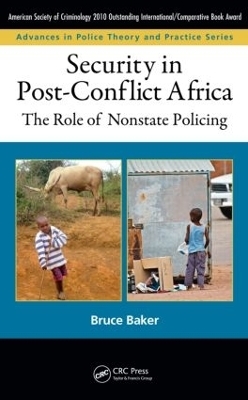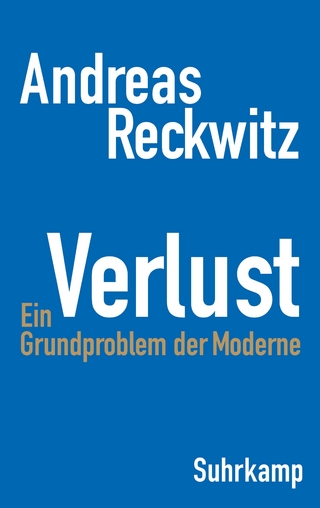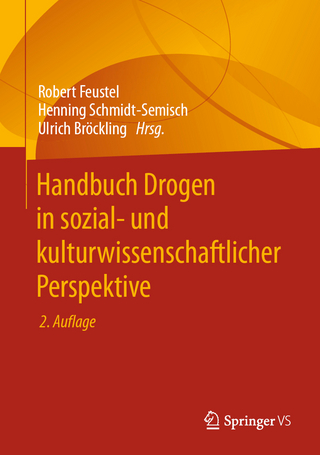
Security in Post-Conflict Africa
The Role of Nonstate Policing
Seiten
2009
Crc Press Inc (Verlag)
978-1-4200-9193-9 (ISBN)
Crc Press Inc (Verlag)
978-1-4200-9193-9 (ISBN)
- Titel z.Zt. nicht lieferbar
- Versandkostenfrei innerhalb Deutschlands
- Auch auf Rechnung
- Verfügbarkeit in der Filiale vor Ort prüfen
- Artikel merken
Based on six years of field work, the author presents his findings on eight post-conflict African countries. He explores the concept of nonstate policing, explains why it dominates African security provision, describes the services provided, measures the levels of local support, and discusses issues of accountability.
Policing is undergoing rapid change in Africa as a result of democratization, the commercialization of security, conflicts that disrupt policing services, and peace negotiations among former adversaries. These factors combined with the inability of Africa’s state police to provide adequate protection have resulted in the continuing popularity of various forms of nonstate policing. Based on six years of field work, Professor Bruce Baker presents his findings on eight African countries in Security in Post Conflict Africa: The Role of Nonstate Policing.
How well does nonstate policing work?
Professor Baker’s research, gathered through interviews, observations, and focus groups, examines the complex types of law enforcement and crime prevention systems that have developed during times of political and social instability. He explores the concept of nonstate policing, explains why it dominates African security provision, describes the services provided, measures the levels of local support, and discusses issues of accountability. He examines the potential hazards of working with nonstate police and suggests ways to enhance these systems and to establish partnerships with the state police for the benefit of the citizens.
Are collaborative efforts the key to security?
Challenging prevailing assumptions in academic and policy circles about nonstate policing, this groundbreaking work provides insight into the optimum security model, whereby success is determined by the quality and efficacy of the security received by the people, regardless of who delivers that service.
The author maintains a related website with supplemental information.
Policing is undergoing rapid change in Africa as a result of democratization, the commercialization of security, conflicts that disrupt policing services, and peace negotiations among former adversaries. These factors combined with the inability of Africa’s state police to provide adequate protection have resulted in the continuing popularity of various forms of nonstate policing. Based on six years of field work, Professor Bruce Baker presents his findings on eight African countries in Security in Post Conflict Africa: The Role of Nonstate Policing.
How well does nonstate policing work?
Professor Baker’s research, gathered through interviews, observations, and focus groups, examines the complex types of law enforcement and crime prevention systems that have developed during times of political and social instability. He explores the concept of nonstate policing, explains why it dominates African security provision, describes the services provided, measures the levels of local support, and discusses issues of accountability. He examines the potential hazards of working with nonstate police and suggests ways to enhance these systems and to establish partnerships with the state police for the benefit of the citizens.
Are collaborative efforts the key to security?
Challenging prevailing assumptions in academic and policy circles about nonstate policing, this groundbreaking work provides insight into the optimum security model, whereby success is determined by the quality and efficacy of the security received by the people, regardless of who delivers that service.
The author maintains a related website with supplemental information.
Coventry University, UK International Police Executive Symposium, New York, USA Coppin State University, Baltimore, Maryland, USA
Africa and the Post-Conflict Security Environment. Nonstate Policing Explained. Policing the City: Neighborhood and Customary Responses. Policing the City: Community Police Forums and Local Government Responses. Policing the Village. Policing the Workplace. Policing Women. Fitting Nonstate Policing Into Security Reform. Bibliography. Index.
| Erscheint lt. Verlag | 10.8.2009 |
|---|---|
| Reihe/Serie | Advances in Police Theory and Practice |
| Zusatzinfo | 4 Tables, black and white; 1 Illustrations, black and white |
| Verlagsort | Bosa Roca |
| Sprache | englisch |
| Maße | 156 x 234 mm |
| Gewicht | 570 g |
| Themenwelt | Sozialwissenschaften ► Soziologie |
| ISBN-10 | 1-4200-9193-X / 142009193X |
| ISBN-13 | 978-1-4200-9193-9 / 9781420091939 |
| Zustand | Neuware |
| Haben Sie eine Frage zum Produkt? |
Mehr entdecken
aus dem Bereich
aus dem Bereich
Ein Grundproblem der Moderne | Die erste umfassende Studie zum …
Buch | Hardcover (2024)
Suhrkamp (Verlag)
32,00 €
Buch | Hardcover (2024)
Springer Fachmedien Wiesbaden GmbH (Verlag)
219,99 €


